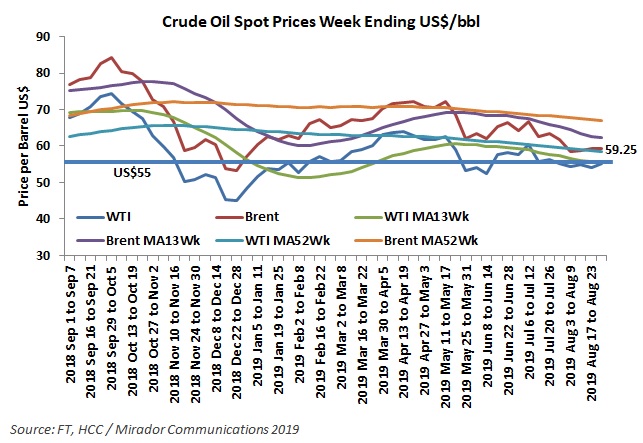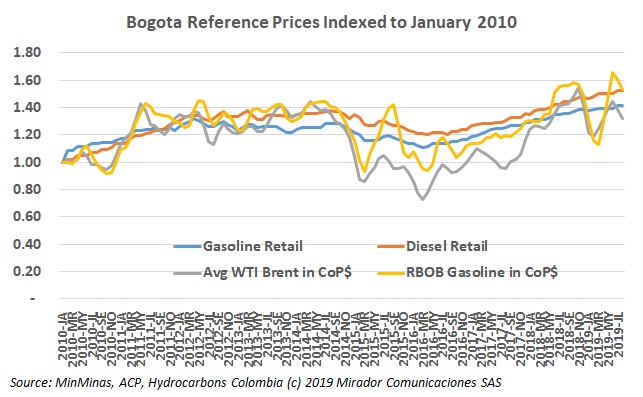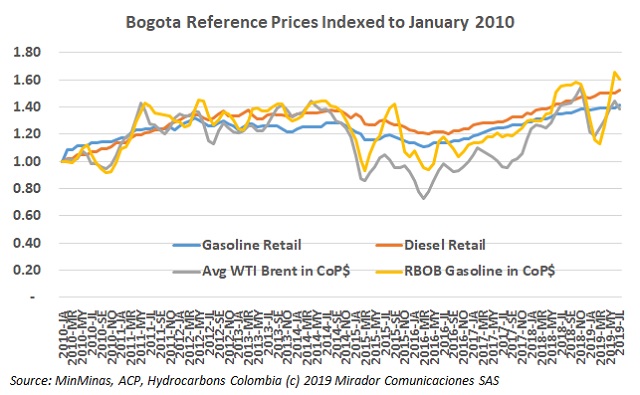
A couple of years ago we wrote an article called Your CFO is smiling which talked about rising oil prices. Maybe it has been harder to find a smile lately and budgeting and planning season is coming up…

The Ministry of Mines and Energy (MinMinas) announced a slight decrease in fuel prices for August 2019. However, these remain high compared to figures of last year.
Authorities are investigating alleged irregularities at Ecopetrol’s (NYSE:EC) El Alcaraván ethanol plant in Puerto López (Meta).
The new president of the Colombian Cargo Transporters Federation (Colfecar), Juan Miguel Durán, spoke about his goals for the sector.
The Colombian government has not raised producer prices since March but a 1.5% increase in the pump price has some experts speculating about inflation.

The Ministry of Mines and Energy (MinMinas) announced a new increase in fuel prices for July 2019. The government had not changed the prices since March this year.
The president of Fedebiocombustibles, Jorge Bendeck, spoke about the impacts of tariffs in the biofuels sector.
Nearly 330 TransMilenio buses will be replaced, after authorities announced the beginning the renewal of the system’s fleet.
Experts are concerned about the future of the Fuel Price Stabilization Fund (FEPC), which could reach a CoP$19B deficit this year.
Colombia’s ethanol industry has been competing with the American ethanol market, which unlike the national industry, has a subsidy that is now affecting local producers.